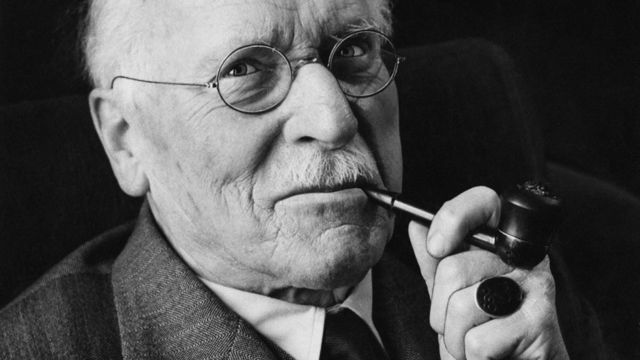It is impossible to know exactly what will happen next. Sure we can set goals and make plans and prepare ourselves so that our lives move in a general direction. But then suddenly a hurricane moves up the east coast and it moves slower than expected and rains a lot more, and the damage is from inland floods, instead of winds and surf on the coastline. Many of the situations we struggle with in our lives are events that we could not have planned for or events that did not follow the script we had put in place. In fact, some of our most challenging struggles come from situations we never thought of worrying about; while those situations that fueled our anxiety, interrupted our sleep, and ruined our appetite, like our car breaking down on the way to a job interview, never materialized.
Carl Jung wrote about how the unpredictability in day to day life leads to anxiety (he called it neurosis back then) in his 1917 essay, On The Psychology of the Unconscious
"Much indeed can be attained by the will, but, in view of the fate of certain markedly strong-willed personalities, it is a fundamental error to try to subject our own fate at all costs to our will...But has it ever been shown, or will it ever be, that life and fate are in accord with reason, that they too are rational? We have on the contrary good grounds for supposing that they (life & fate) are irrational, or rather that in the last resort they are grounded beyond human reason. The irrationality of events is shown in what we call chance, which we are obviously compelled to deny because we cannot in principle think of any process that is not causal and necessary...In practice, however, chance reigns everywhere...The plentitude of life is governed by law and yet not governed by law, rational and yet irrational."
Here Jung is wondering if it is reasonable to worry. He questions whether it makes sense to be anxious about future events. Many of us would say that we should absolutely be anxious simply by pointing to how badly events turn out for people. Jung points out that all the energy we put into our worries and all the time spent being anxious will not allow us to make sure our plans are followed perfectly. Chance events cannot be prevented by better planning or by spending more sleepless nights with our minds racing.
Ninety-nine years ago Jung wrote about the fact that we need to expect some unexpected events to occur. We all hope and try to convince ourselves that certain actions on our part will always lead to the best anticipated outcomes. We also know that this is impossible, which leads us to worry and become anxious and we even end up missing out on the pleasures that life can offer us.
We would be better off if we accepted that we cannot always control the outcomes of events and that when situations do not go the way we would like it does not always mean that we were unprepared, or naive, or foolish for setting high expectations. It simply means that life happened and nature followed a different path which we could never have predicted. We can still enjoy life anyway if we give ourselves permission to reduce the worry and the anxiety about events that are beyond our control.
The quote above from Carl Jung was originally published in 1917. I quoted a 1953 publication of Two Essays on Analytical Psychology (p.49) by C.G. Jung, which was published by Bolligen Foundation, Inc. in New York, NY.

No comments:
Post a Comment